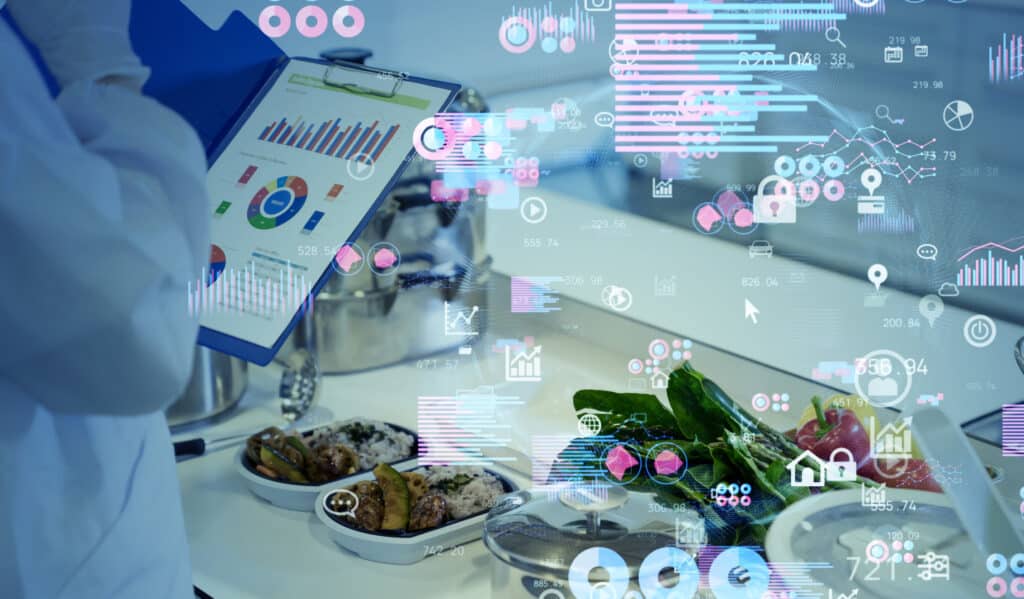By visiting our site, you agree to our privacy policy regarding cookies, tracking statistics, etc.
In the competitive food and beverage industry, restaurants are constantly looking for ways to improve customer relationships and streamline operations. A Restaurant Customer Relationship Management (CRM) system offers a comprehensive solution to manage guest interactions, gather valuable insights, and enhance overall customer satisfaction. By implementing the right CRM, restaurants can stay ahead of the curve, delivering exceptional experiences while boosting profitability.
A Restaurant Customer Relationship Management (CRM) system is a specialized restaurant management tool designed to help restaurant owners manage and optimize their interactions with customers. At its core, a CRM centralizes customer data—like dining preferences, order history, and feedback—to enable personalized service and marketing strategies. By understanding guest behavior and preferences, restaurants can enhance customer satisfaction, foster loyalty, and drive repeat business.
Unlike generic CRM systems, restaurant-specific CRMs are tailored to address industry nuances such as reservations, table management, and loyalty programs. They act as the digital backbone for modern eateries, bridging the gap between operational efficiency and exceptional guest experiences.

A robust restaurant CRM is packed with features that cater to the unique demands of the hospitality industry. Some of the most impactful include:
Customer Profiles: Store and manage detailed guest information, including birthdays, dietary preferences, and dining history.
Reservation Management: Streamline booking processes and reduce no-shows through automated reminders.
Loyalty Programs: Reward frequent diners with customizable incentives that align with their preferences.
Feedback Collection: Gather and analyze reviews to address customer concerns and refine your offerings.
Marketing Automation: Launch targeted email campaigns and promotions based on customer behavior.
Integration Capabilities: Sync with point-of-sale (POS) systems, online ordering platforms, and social media channels for a seamless experience.
In an era where competition is fierce and customer expectations are sky-high, effective relationship management is not just an advantage—it’s a necessity. A CRM enables restaurants to:
Enhance Personalization: Deliver tailored experiences that turn first-time visitors into loyal patrons.
Boost Revenue: Upsell and cross-sell effectively by understanding what customers want.
Improve Operational Efficiency: Automate mundane tasks, allowing staff to focus on delivering exceptional service.
Track Performance: Gain insights into customer trends and behavior to make data-driven decisions.
By focusing on building strong relationships, restaurants can differentiate themselves in a crowded marketplace and create lasting impressions.

CRMs generally fall into three categories, each serving distinct purposes:
Operational CRMs: Focus on streamlining day-to-day activities such as reservations, customer communications, and task automation.
Analytical CRMs: Emphasize data analysis to uncover customer trends, measure campaign success, and identify areas for improvement.
Collaborative CRMs: Facilitate information sharing among teams to ensure cohesive customer interactions across touchpoints.
A restaurant CRM often combines elements from all three, providing a holistic solution that addresses diverse operational and strategic needs.
Investing in a restaurant CRM offers numerous advantages, including:
Stronger Customer Retention: Build lasting relationships by delivering memorable dining experiences.
Increased Revenue: Tap into customer insights to drive targeted promotions and upselling.
Streamlined Operations: Automate manual processes like reservations, reducing errors and freeing up staff.
Enhanced Marketing: Execute data-driven campaigns that resonate with your audience.
Real-Time Insights: Monitor business performance and adapt quickly to changing customer demands.

Choosing the right CRM can be daunting, but here are five standout options tailored for the restaurant industry:
Eat App is a powerful CRM solution designed for restaurants looking to streamline their operations and enhance customer relationships. Known for its intuitive interface, Eat App excels in reservation management and customer analytics, making it a favorite among restaurateurs.
Pricing: Starts at $69/month.
SevenRooms stands out as a comprehensive platform that goes beyond standard CRM features. With a focus on personalization, it helps restaurants build meaningful relationships with their guests through advanced data collection and marketing tools.
Pricing: Custom pricing based on features.
OpenTable is a household name in the restaurant industry, offering a widely recognized platform for reservations and guest management. Its extensive reach and user-friendly features make it an attractive choice for establishments of all sizes.
Pricing: Starts at $249/month plus per-cover fees.
Toast offers a versatile all-in-one solution that combines CRM, POS, and online ordering features. Designed with scalability in mind, Toast caters to the needs of small diners and large restaurant chains alike.
Pricing: Starts at $165/month.
Resy is a sleek and modern CRM solution tailored to mid-to-large-sized restaurants. With a focus on loyalty and guest engagement, Resy offers tools that help businesses foster stronger connections with their customers.
Pricing: Custom pricing based on needs.
Blog Menu
See why more than 40,000 restaurants use Restaurant365
A restaurant CRM is more than just a tool—it’s a gateway to deeper customer connections and operational excellence. By leveraging the right CRM, restaurants can not only meet but exceed guest expectations, ensuring long-term success in an ever-evolving industry. Evaluate your needs, explore your options, and embrace the power of technology to transform the way you manage relationships. Your customers—and your bottom line—will thank you.
Share this blog:
500 Technology Drive, Suite 200
Irvine, CA 92618
Westech 360
8911 N Capital of Texas Hwy
Building 1, Suite 1200
Austin, TX 78759
Restaurant365 bridges the gap between accounting and operations by centralizing all data, helping restaurant operators to become more efficient, accurately forecast, and tackle any challenge or opportunity with speed and accuracy.